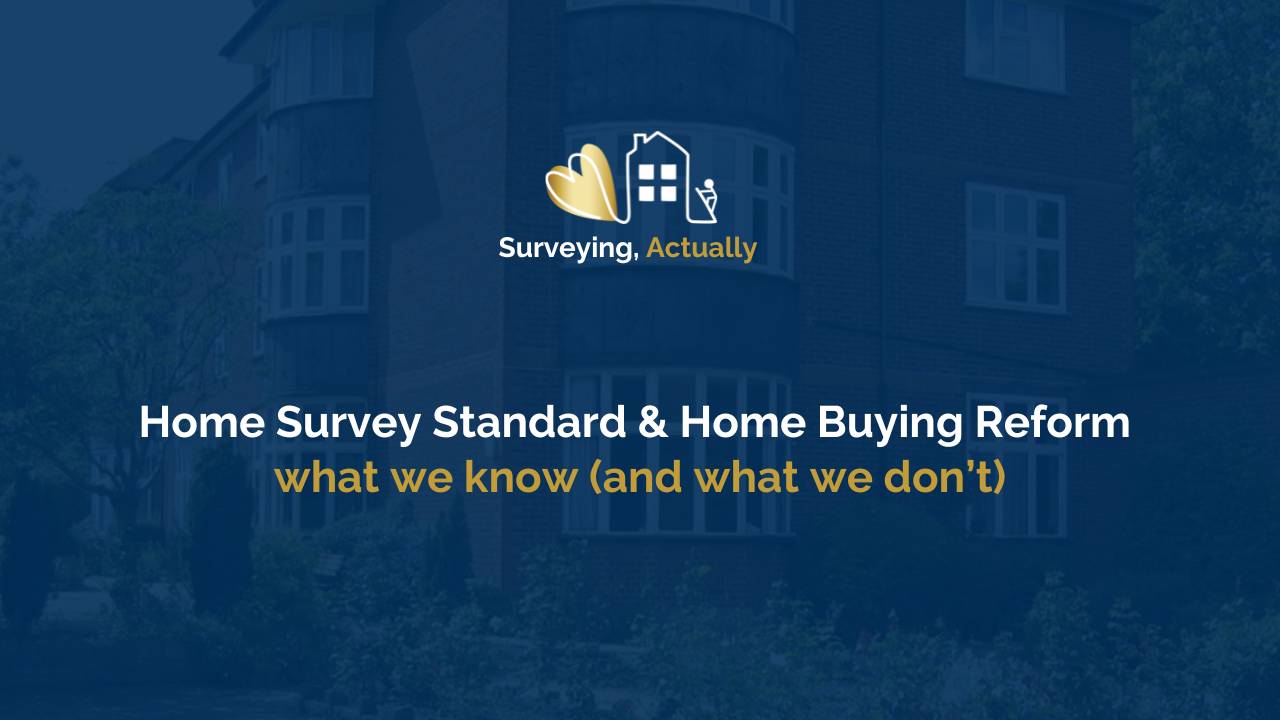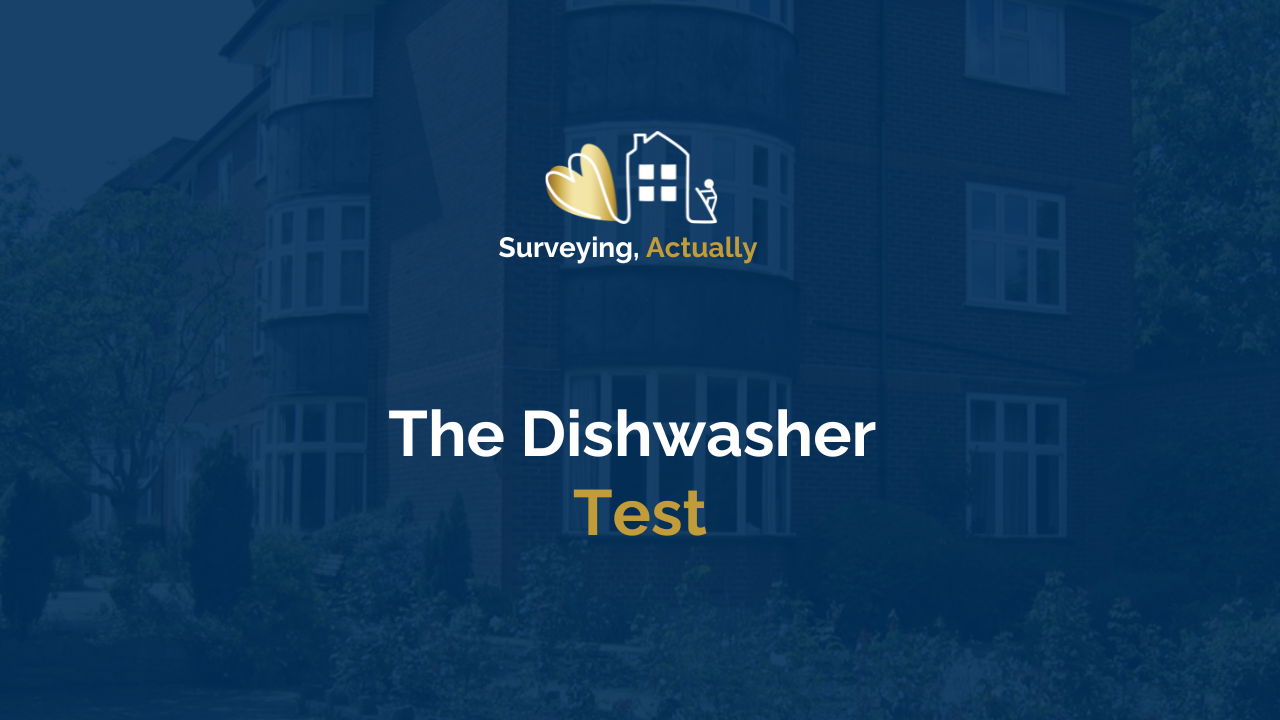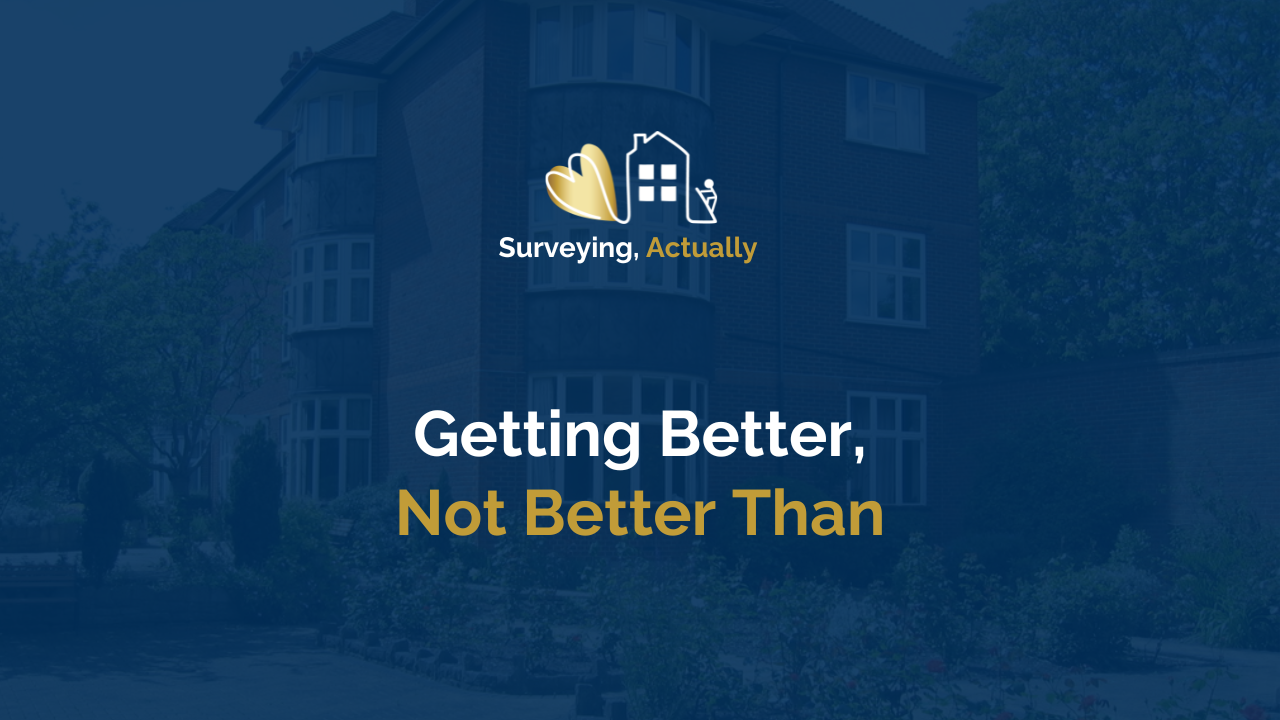How To Protecting Your Surveying Practice When Mentoring
Mar 27, 2024
People sometimes tell me I am brave when I speak out, but since the RICS Rules of Conduct were updated, I admit I have thought twice about what I post, where, and when. When frustrated with serious matters in your profession, it is hard to be polite. It’s one thing to be mindful of your social media posts, but it seems some fail to remember that the rules mostly apply when doing business.
So, what do integrity and respect look like, and how do you know when you have gone too far? When it does, how can you be certain that when you raise your concerns, action will be taken and appropriate measures implemented to improve things?
I will admit that the updated rules have made me a tad more apprehensive, even at my career stage, but I wonder if some of the people newer to surveying feel the same way. I’m thinking not—and that should be a serious worry for all.
I want to highlight some situations that were brought to my attention over one week involving newly qualified surveyors and a pattern emerging. This is not to say this is the behaviour of all newly qualified people—context is, of course, everything—but lessons must be learned.
Case 1
A sole trader provides free ad hoc mentoring to a trainee on a surveying course looking for more experience. The surveyor is a highly experienced building surveyor but not an RICS member. The trainee qualifies as AssocRICS sets up practice in the same location as the experienced surveyor and calls themselves a building surveyor. The business name is similar. It was so similar; the experienced surveyor doesn’t realise this until he starts getting complaints from clients he doesn't have about calls not being returned and struggles to make sense of it. When the surveyor raises the matter with the newly qualified surveyor, they get short shrift - he is RICS regulated, registered on companies house and is not doing anything wrong. The surveyor raised a complaint with RICS and was advised that it did not meet their threshold for investigation. The surveyor, unfamiliar with RICS processes, reaches out for some help. It has been incredibly stressful; he is worried about his business and the clients, who are very upset and calling him in error. He feels helpless and doesn't know what to do next.
Case 2
A sole trader provides free ad hoc mentoring to a trainee on a surveying course looking for more experience. The surveyor notes the trainee lacks experience and tries to offer as much support as possible. The trainee qualifies for AssocRICS and immediately sets up a practice in the same location as the experienced MRICS surveyor. On this occasion, the newly qualified helped themselves to the text and photos the surveyor used on his website and posted about his new business on LinkedIn. When confronted by the surveyor, the newly qualified surveyor removes the posts but does not believe he has done anything wrong. The surveyor is worried about the competency and ethics of the newly qualified surveyor but recognises that as the posts have been taken down and he has no website yet, RICS are likely to act. The surveyor is not sure what to do.
Case 3
A newly qualified AssocRICS surveyor with experience as a builder who attended a surveying course sets up a new surveying practice and calls themselves a building surveyor. They use the same business name as one of their course tutors. The course tutor is a highly respected and experienced chartered building surveyor. Although they are in different parts of the country, they appear on the same Google search. Not being, or needing to be visible on social media, the chartered building surveyor is unsure what to do or how big the problem is. Either way, it is not very nice.
Case 4
A newly qualified surveyor qualifies as AssocRICS. They set up a business and call themselves a building surveyor. They have around five years of experience in various property-related businesses, none of which appear to be very surveying-specific, and it is not clear what training they did to qualify. They conduct a building survey on a property purchase and make several recommendations, including an engineer's report. The concerned vendor instructs their report with a more experienced building surveyor, and there is a significant difference of opinion. The correspondence gets heated, and both surveyors stand firm in their opinions. The newly qualified surveyor asked for advice on making a complaint about the more experienced surveyor.
For what it is worth, here are my thoughts following various discussions with people who reached out:
For Newly Qualified Surveyors
If you are newly qualified as AssocRICS and unless you have extensive and specialist experience, you are in no way experienced enough to call yourself an RICS building surveyor. While RICS does not protect the term building surveyor, it is a mark of a specific skill set and one expected to signify significant experience. It is, therefore, not wrong to call yourself a building surveyor if you have a surveying-related qualification, but in context to the work you do and who you do it for, it is not right either. The more you lean into being comfortable with your skill level, and how you shape your business around it, you will attract the right level and type of work. You will be much better at it, more confident and probably enjoy it more.
The RICS Home Survey Standard is for RICS surveyors, and it is important to note that it is a minimum standard only. Just because you can report to a minimum standard does not mean you should. You should always aim to provide your best and ensure the client gets what they need for the type of property they have. Your client will interpret how you position yourself as a sign of your experience and skill, and if you are punching about your weight, it will only ever lead to trouble in the long run.
Get familiar with what good looks like and what you want it to be. View many different report formats and get your reports properly audited regularly. It will help you to improve.
Do not be surprised if you have a different opinion from another surveyor - it is more common than you think. However, it is also an opportunity to talk to the other surveyor and learn more. It is also okay to change your mind and revise your advice now that you have new insight. There is nothing, and I mean nothing, you cannot recover from so long as it is all resolved before the completion of any sale. After that, you are in claims territory and pound signs.
Sole traders and SMEs are often criticised for not mentoring students and learners. Given the experiences above, no one would blame them. That said, many do their best and go the extra mile. Mentoring costs any business time and money. Say thank you, offer to pay for time and don’t take advantage.
If you are newly qualified and starting a business, it is essential that you have a formal mentoring and additional training plan in place and access to a business network. Running a surveying business is different from running another business, so do not get complacent even if you have owned businesses before.
It is okay to start a business in the same patch as someone else, but don't bite the hand that feeds you if it is your mentor. Be upfront about it and/or get your experience out of the area. I can’t put it any other way than to say it frankly takes the p*** to use someone else's knowledge to advance your career - and ultimately your income- to set up as competition on their doorstep when they have given their time in good faith. Building a relationship and being upfront and honest means you will find a way to coexist and support each other by passing work over or sharing advice. Local surveyors need each other. In the long run, you might also find it a better opportunity to take over a business than to start and grow your own.
Choosing a business name is not difficult. Using a name ‘similar’ to another existing firm, especially an SME who has supported you, suggests intent to mislead and be unfair to others. I would urge you to read the RICS Codes of Conduct.
For SMEs and Experienced Qualified Surveyors
As a business owner, your job is to manage your business and reduce the risk of things going wrong. Too often, surveyors focus on inspecting properties and don't spend enough time on their businesses.
Ensure your business name is trademarked with the Intellectual Property Office; none of the above examples had. Not only is it quick and easy to do, but it will offer you some protection if you need to take legal action and is an asset in your business.
Ensure you have adequate terms of use, a privacy notice and a copyright notice on your website. These are there to protect you.
Invest in photography so you own the copyright. Far too many surveyors use the same photos of a surveyor looking at a yellow brick house while holding a clipboard - it is very lazy and means a consumer will not be able to tell your businesses apart. Use a local photographer to keep it affordable.
If you offer mentoring in any capacity, ensure you have a clear, signed agreement with the individual. They may have insurance from the training establishment, but you will also want to ensure confidentiality. It is okay to be bold and ask about their intentions. Look for mentees who are prepared to travel, and remember that you can still find a way to give back in many other ways if that does not leave your business vulnerable.
If you refer a concern to RICS, be mindful that there is a difference between a regulation matter and a complaint. You must demonstrate that you have followed the other party's complaint procedure if it is a complaint. If it concerns a member, perhaps tell RICS regulation about your concerns. While they may be unable to take disciplinary action, they may proactively remind the surveyor of their obligations and offer additional support if needed.
We have all been naive and made mistakes; we can be kind and firm in handling them. Trust and communication is key to the success of many small businesses. Mentoring can be beneficial both ways, as can two businesses at different stages finding a way to support each other.
And if you think you might need some help working on your business, not just in it, find out more about working with me or joining the Love Surveying Mastermind.
Enjoy this article? You might also like Unleashing the Power of Motivational Maps for Surveyors in Business
Find this content helpful? I'd love to hear your suggestions and recommendations. If you found this article helpful, please share it and show your support by leaving me a Google review, or you can Buy Me a Coffee. Being a small business just like you, it makes all the difference.





